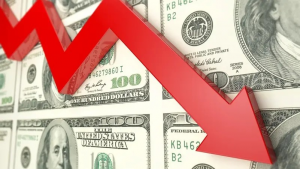Asian equities rallied on Thursday, while bond yields slid as investors weighed cooling U.S. inflation against a more hawkish posture by the Federal Reserve, although European stocks were expected to open lower.
Japanese shares underperformed and the yen eased against the dollar as the Bank of Japan began its two-day policy meeting.
MSCI's broadest index of Asia-Pacific shares outside Japan climbed 0.6%, with Taiwan stocks jumping as much as 1.8% to a record high, and Hong Kong's Hang Seng up 0.5%, buoyed by the U.S. S&P 500 and tech-heavy Nasdaq closing at all-time peaks overnight.
However, the pan-European STOXX 50 futures declined 0.26%, as of 05:55 GMT.
U.S. futures pointed to further gains, with S&P futures up 0.2% and Nasdaq futures adding 0.65%.
Japan's Nikkei slipped 0.25% after an initial tech-led advance fizzled.
Mainland Chinese shares also weakened, with the blue-chip CSI 300 losing 0.37%, as EU tariffs on Chinese electric vehicle imports escalated trade tensions.
"Ultimately, I think markets prefer strong and robust economic growth with no rate cuts than faltering growth with multiple rate cuts," said David Chao, global markets strategist, Invesco Asia Pacific.
"We are in this environment where I don't think it really matters for markets when the first (Fed) rate cut is going to happen - markets can still perform well."
Wall Street rallied strongly overnight, while the dollar and Treasury yields tumbled early in the U.S. session, after the closely watched CPI report showed core prices growing at their slowest annual pace in over three years last month.
However, investors were whipsawed later as Federal Reserve officials trimmed projections for interest rate reductions this year to a single quarter-point cut.
In his post-meeting press conference, Fed Chair Jerome Powell said the rate-path decision was a "close call" for many policymakers, and to some degree a later start to rate reductions this year had been compensated for with an additional cut in 2025.
"The Fed has changed its mind multiple times on its expected policy path, so we don't put much weight on its new set of projection," BlackRock (NYSE:BLK) Investment Institute head Jean Boivin said.
"Incoming inflation surprises... will likely continue to lead to large revisions to the policy outlook. And with little clarity from central banks on the path ahead, markets have become prone to reacting strongly to individual data points."
The U.S. 10-year Treasury yield stood around 4.325% on Thursday, after starting Wednesday at 4.41% and then dipping as low as 4.25% for the first time since April 1 following the CPI surprise.
Australia's 10-year yields dropped as much as 10 bps to 4.196%.
Japan's 10-year yields fell as much as 3 bps to 0.955% for the first time since May 17.
The Nikkei newspaper reported that the BOJ is likely to debate a reduction in monthly bond purchases at its policy gathering ending Friday, echoing earlier reports from Reuters and other news outlets.
The yen was a notable underperformer against the dollar overnight, while most other major currencies registered substantial gains.
The yen lost 0.3% to 157.17 per dollar, erasing Wednesday's 0.28% advance.
Meanwhile, the euro held steady at $1.0803 after firming 0.64% overnight.
The dollar index, which measures the U.S. currency against the euro, yen and four other major peers, added 0.14% to 104.84, following a 0.54% slide on Wednesday.
Gold slumped 0.53% to $2,310.30 per ounce.
Crude oil eased, under pressure following a bigger-than-expected rise in U.S. stockpiles.
Brent crude futures lost 0.31% to $82.34 a barrel, and U.S. West Texas Intermediate (WTI) crude futures declined 0.29% to $78.27. Both benchmarks had gained about 0.8% on Wednesday.













